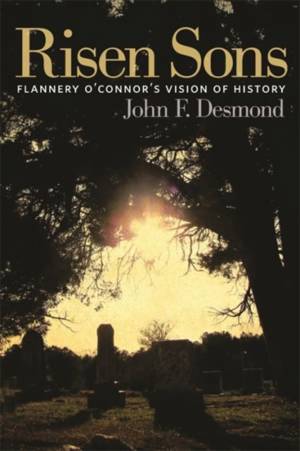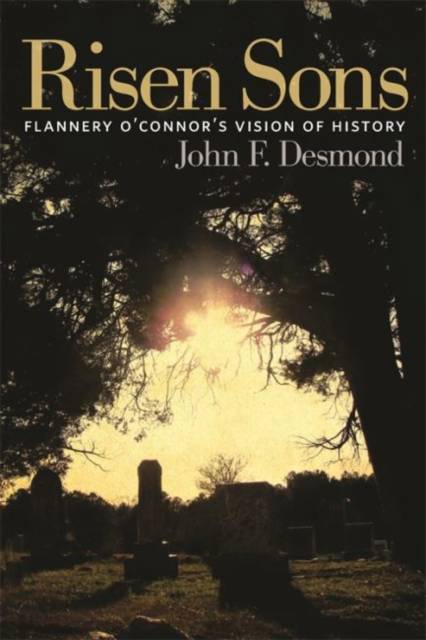
- Afhalen na 1 uur in een winkel met voorraad
- Gratis thuislevering in België vanaf € 30
- Ruim aanbod met 7 miljoen producten
- Afhalen na 1 uur in een winkel met voorraad
- Gratis thuislevering in België vanaf € 30
- Ruim aanbod met 7 miljoen producten
Zoeken
€ 36,95
+ 73 punten
Omschrijving
Though stressing that Flannery O'Connor was first and foremost a writer of fiction, John Desmond maintains in Risen Sons that her orthodox Catholic theology stands at the center of her vision, providing the metaphysical base from which the fiction evolved. Given this religious context, Desmond contends that O'Connor's stated view of fiction-writing as an "incarnational act" suggests a direct connection between the practice of fiction-writing and the Incarnation of Christ--the pivotal historic event which her fiction seeks to imitate and through which her vision is revealed.
O'Connor's attempts to create images that would connect the Incarnation with fictional incarnation, Mystery with mystery, were not immediately realized in her early works. It was only with Wise Blood that she came to recognize Christian historical vision as her particular fictional subject and the analogical method as the appropriate fictional strategy. This discovery made possible the convergence of her metaphysics, historical vision, and artistic technique, providing the thematic and structural basis for the quality of "unique wholeness" that distinguishes all her works. Desmond suggests that O'Connor achieved the fullest development of her analogical vision and most complete identification of thought and technique in her novel The Violent Bear It Away. Her dramatic rendering of the route Tarwater takes before he can comprehend the transcendent, mysterious source of personality and the meaning of personhood in history parallels the actions of Christ, embodying O'Connor's complex and dramatic vision of the mind's engagement with history in all its ultimate extensions of meaning.Specificaties
Betrokkenen
- Auteur(s):
- Uitgeverij:
Inhoud
- Aantal bladzijden:
- 144
- Taal:
- Engels
Eigenschappen
- Productcode (EAN):
- 9780820335810
- Verschijningsdatum:
- 1/11/2010
- Uitvoering:
- Paperback
- Formaat:
- Trade paperback (VS)
- Afmetingen:
- 152 mm x 229 mm
- Gewicht:
- 222 g

Alleen bij Standaard Boekhandel
+ 73 punten op je klantenkaart van Standaard Boekhandel
Beoordelingen
We publiceren alleen reviews die voldoen aan de voorwaarden voor reviews. Bekijk onze voorwaarden voor reviews.











